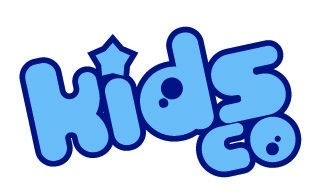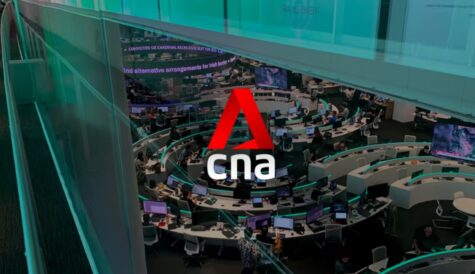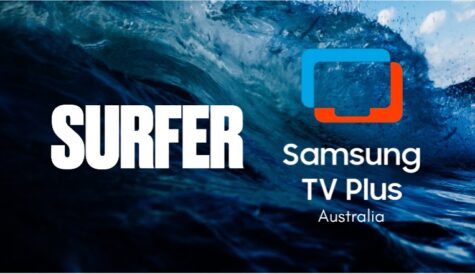
After more than 40 years of operation, DTVE is closing its doors and our website will no longer be updated daily. Thank you for all of your support.
KidsCo looks to big markets and new revenues
 Global kids channel KidsCo will weigh the benefits of localising for new markets, managing director Hendrik McDermott told DTVE.
Global kids channel KidsCo will weigh the benefits of localising for new markets, managing director Hendrik McDermott told DTVE.
Given the cost of localising channel feeds, global kids channel KidsCo will weigh international expansion opportunities on a case-by-case basis, according to managing director Hendrik McDermott. KidsCo will also look at opportunities to diversify its revenue streams.
“Globally we’re looking at increasing subscribers in a calculated fashion, targeting key territories where we’re already on the air. We have pan-regional feeds and it costs a lot to localise feeds. We have to take a dubbing risk to go into new territories,” says McDermott, who took the reins at KidsCo at the end of last year.
In terms of international expansion opportunities, McDermott said that KidsCo still had “a long way to go in Russia” and had done well in Turkey, another significantly large market. Recovering its position in key central European market is a priority as is building its presence in Romania. “Turkey gives us almost perfect distribution. We are trying to emulate that success in central and eastern Europe,” says McDermott. Western Europe remains challenging, given its domination by large pay TV operators.
The high cost of localisation – essential for kids channels – means that the case for launching in a new territory has to be weighed carefully. While it is possible to introduce kids programmes in certain Asian markets in English, Europe requires 100% localisation, he says.
“It’s difficult and expensive,” says McDermott, adding that for kids channels localisation generally means expensive dubbing. “We don’t subtitle at the moment – affiliates prefer dubbing. From a viewer perspective dubbing is better.” In a few territories such as Poland, lectoring is the preferred option.
The cost of localisation means that small countries can be challenging from a business perspective. However, in some cases an English-language version of the channel is acceptable and some countries will accept the language feed of a neighbouring territory if its inhabitants are familiar with that language. “In general the affiliates expect the channel to be 100% dubbed on day one. Often the upfront revenue up front doesn’t make smaller territories valid. We are in 18 different languages. Small countries might have expatriate audiences or multi-language feeds and some will tolerate English,” he says.
Taking localisation further, KidsCo does acquire some region-specific programming, says McDermott. However this generally has to work across multiple territories. “We do acquire region specific programming, but it’s not worth having local insertion for one particular programme,” he says.
KidsCo is currently reliant on affiliate subscriber revenues, but McDermott says that it is actively looking to diversify. “It’s a single revenue stream business at the moment. We are absolutely looking to diversify revenue. The first one is advertising,” he says. “There are challenges – we are in the kids business which is heavily regulated. It is also difficult to sell pan-regional ads. The model is for local insertion, which tends to work on larger platforms.” He cites Australia, Poland and South Africa as possible markets. “We get positive feedback from affiliates on parents’ views and that will govern the type of ads we are willing to tolerate. We also have to think about the volume of advertising. We are not a ‘toy factory’ type of channel,” he says.
Licensing and merchandising offers less in the way of opportunities. McDermott says KidsCo is “very much a TV channel” with relatively little in the way of intellectual property rights to exploit outside of that. However the channel is looking to expand the amount of original programming it airs. “We have commissioned some new content that will be on air next year, but we are not jumping in headfirst,” he says. The channel’s new structure, with ownership now split between majority shareholder NBC Universal and Corus Entertainment, gives KidsCo two strong corporate parents that allows it to commission content that can be exploited across different platforms, he says.
Multiscreen project
With that last point in mind, KidsCo is also revivifying its multiscreen efforts. McDermott is turning his attention to the MyKidsCo project that was initially aired a couple of years ago.
“It’s been on the backburner but we ‘re hoping to announce a timeline at the end of the year. We have spoken to platforms which are interested in things that differentiate them,” he says. “MyKidsCo allows kids to influence the schedule. It can be done on a set-top or iPad. We have cleared rights – that’s the first issue. The second is technology development – especially around the large number of set-tops out there. Getting to a simplified version that can easily be implemented takes work,” he adds.
KidsCo, which currently bundles video-on-demand rights with its affiliate distribution deals, could also look to distribute its programming independently of pay TV operators under certain circumstances, says McDermott. “We haven’t ruled out OTT,” he says. “It needs to be looked at on a country-by-country basis and not risking relationships with distributors. Where we can’t get distribution deals or there are monopoly distributors it might be the only option for us – but there are considerable marketing costs.”
Marketing. The first part of the year was about equity restructuring which was upheaval. Since we have consolidated our branding and logos. We have gone back to affiliates with clear brand guidelines. Going forward affiliate marketing will be our focus.
In general, says McDermott, KidsCo will continue to focus on its core marketing message of delivering safe content for kids. The channel recently consolidated its branding and logos and has communicated its brand guidelines to affiliates: “The thing we can offer is safe and non-violent content. We are trying to provide high-quality programming for children.”


